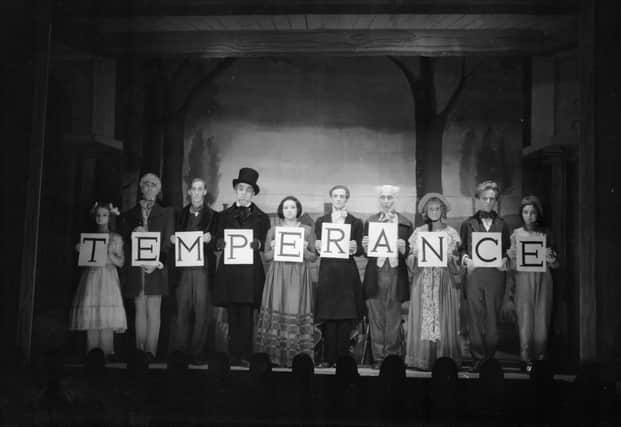Alcohol advertising: Someone tell the SNP that prohibition has never worked – Brian Wilson


They exalt export figures as proof of demand around the world for Scottish products. The omitted sub-text is that Scotch whisky is by far our biggest export, worth £4.5 billion a year and sustaining 11,000 jobs.
Commitment to Scotland’s rural communities neglects to observe that easily their largest investor is the drinks industry. Is there any glen or island without its micro distillery or village devoid of its own craft gin? They also create one of our premier tourism offerings. Visitor centres abound.
Advertisement
Hide AdAdvertisement
Hide AdA success story to celebrate? Well, hang on. While the right hand of the Scottish Government depends hugely on the drinks trade for its economic rationale and idyllic images, the left hand can see nothing but doom and gloom.
Its basic instinct to ban things takes over. So there is a consultation paper, not on the overall role of alcohol production and consumption in Scottish society, which would be valid, but on “potential restrictions to alcohol advertising and promotion in Scotland”.
The foreword from Maree Todd MSP, minister for public health, women’s health and sport, is a tale of unremitting gloom. “Scotland has a deep, longstanding and troubled relationship with alcohol,” she vouchsafes.
So what is to be done? The answer, it seems, is to prevent producers from selling their products. Without the requirement for evidence, a causal connection is assumed between the “deep, longstanding and troubled relationship” and “advertising and promotion”.
If other silos of the Scottish Government were consulted, they might ask an obvious question. If Scotland deems it virtuous to introduce some of the measures being consulted upon, should it not expect the rest of the world to do likewise?
I was only vaguely aware of this consultation until a visit to the Johnnie Walker Experience in Princes Street alerted me. Many might regard it as a boon to an ailing thoroughfare, rather than a threat to young minds which should have its windows blacked out on grounds that “shop fronts are a source of marketing exposure”.
My particular interest was in a splendid collaboration between two iconic brands – Johnnie Walker and Harris Tweed. As well as a customised whisky blend, there is a range of quality products including Harris Tweed bags made by a co-operative in the east end of Glasgow.
Well, forget that. The consultation paper informs us: “One way we could seek to reduce the visibility of alcohol brands would be to prohibit the sale or distribution of merchandise including T-shirts, jackets and baseball caps as well as branded glasses and mugs. These increase brand visibility and have more permanence than alcohol TV or on billboards.”
Advertisement
Hide AdAdvertisement
Hide AdThat alone hints at the extremity of these proposals. An expert on licensing law, Stephen McGowan, wrote: “The level of prohibition proposed goes further than anything ever seen before, and is more restrictive than even the temperance legislation of the late 19th and early 20th centuries.” Historical memo: prohibition does not work.
One remarkable statement in the consultation paper is that “without branding and other marketing strategies, alcohol products in each beverage sub-sector are essentially variations of the same thing”. Well, that dismissal of the blender’s art will go down well from Islay to Speyside! Perhaps there could be communal vats, hidden behind large screens, from which those who demand these wretched products could furtively sup?
Of course there are public health issues but they go far deeper and wider than this consultation pretends. They are more directly related to subject areas on which the Scottish Government consistently fails – poverty reduction and education among them – than a brewery sponsoring a festival or a drinks shop advertising its wares.
Incidentally, Ms Todd may not have noticed that a significant proportion of Scotland’s young and not so young have discovered cocaine as an alternative to alcohol. That business doesn’t advertise, it doesn’t sponsor, it doesn’t have its products in shop windows, it doesn’t pay taxes, it doesn’t create employment (apart from the dealers).
Perhaps we could have a consultation paper.
Comments
Want to join the conversation? Please or to comment on this article.
